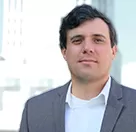James Brasuell, AICP is the former editorial director of Planetizen and is now a senior public affairs specialist at the Southern California Association of Governments. James managed all editorial content and direction for Planetizen from 2014 to 2023, and was promoted from manging editor to editorial director in 2021. After a first career as a class five white water river guide in Trinity County in Northern California, James started his career in Los Angeles as a volunteer at a risk reduction center in Skid Row. Prior to joining Planetizen, James worked at the Cal Poly Pomona College of Environmental Design, as an editor at Curbed LA, as editor of The Planning Report, and as a freelance contributor for The Architect’s Newspaper, the Urban Land Institute – Los Angeles Chapter, FORM, KCET, and the California Planning & Development Report.
Examining the Surprising Segregation of New York City
The common perception of New York City is as of a well-integrated city, full of multi-ethnic neighborhoods. But a recent article peeks behind the curtain of the city’s surprising boundaries of racial segregation.
Real-Time Multi-Modal Way-Finding—Displayed in the Public Realm
The TransitScreen service has been around since 2012, but it’s latest product, real-time displays of all modes of transportation, can display in the public realm, providing a whole new level of interaction with the city.

Unprecedented Demographic Trends Define the 'Next America'
The Paul Taylor and the Pew Research Center have released a new book called The Next America, which describes a country in the “throes of a demographic overhaul.”

Pulitzer Prizes Awarded for Urbanism and Built Environment Journalism
The 2014 Pulitzer Prizes yesterday awarded the best work of journalists over the past year. Included in the roster of winners were journalists and publications covering issues of relevance to Planetizen readers.
An Appeal for Churches to Embrace Multi-Modalism
As a result of the dominant development patterns and transportation practices of the 20th century, churches have receded in their role as an anchors for neighborhoods and broader communities.

























